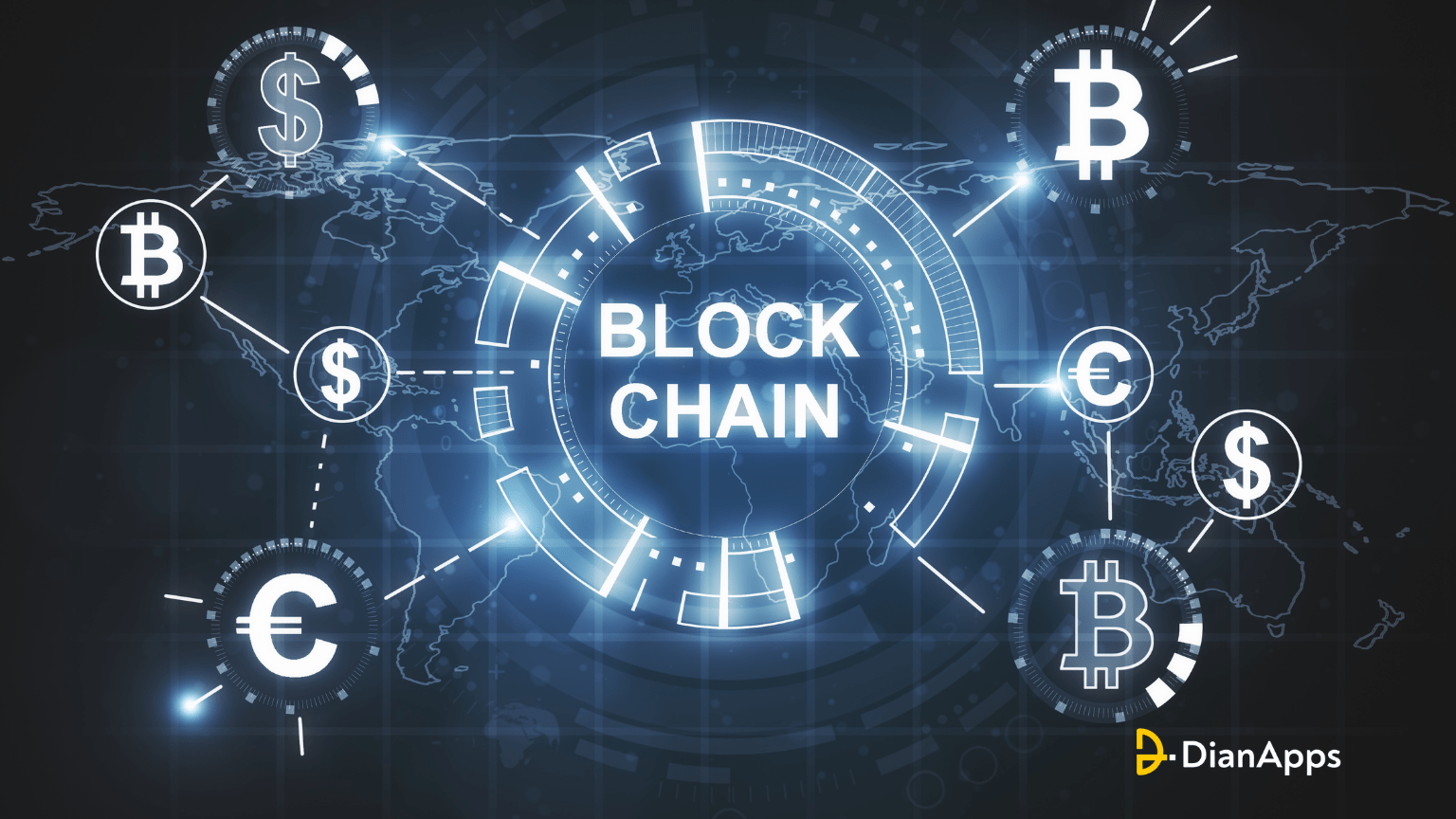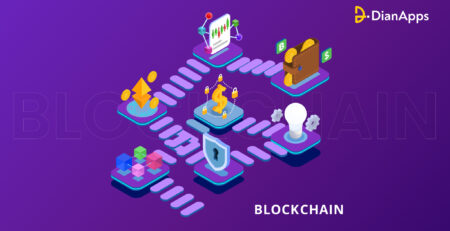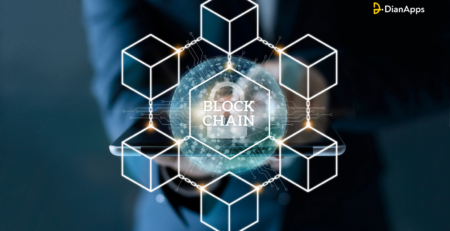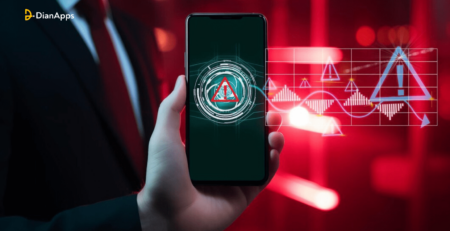How Much Does It Cost to Build a Blockchain App in 2024?
The worldwide blockchain technology market is $17.57 billion in 2023 and is expected to reach $469.49 billion by 2030.
That’s not a surprise since Blockchain apps have been in demand for a while now for many reasons. As per a report from Grand View Research, it has been predicted that the worldwide blockchain technology market will be worth $394.60 billion.
Since the field is lucrative, popular brands like PayPal, Amazon, and Microsoft have adopted blockchain development services.
Entrepreneurs are also investing in blockchain app development across multiple business processes with the demand for better privacy and security.
With the rising popularity of blockchain, comes a frequently asked question – the COST of development.
Let’s explore the cost aspect of blockchain development solutions through this blog!
Blockchain App Development – Cost Breakdown
As we start discussing costs, let’s give you a brief idea. The blockchain app development cost lies in $40,000 – $300,000 or maybe more depending upon the complexity and various other factors that we’ll list further in the blog.
Certain factors affect the overall cost of blockchain app development, including the app’s niche, its UI/UX design, publishing the ICO, proof of concept, etc.
For eg., a dedicated Blockchain app development company like DianApps can help you with even better cost estimation of the blockchain software development project as per your business app milestones to be achieved.
Below, we have provided an approximate percentage of the cost to be allotted to the various stages of your project.

But, this is just an estimation that revolves around the development process. There are various factors that drives the cost of blockchain application development.
Let’s dig deeper!
Factors Affecting Blockchain Development Cost
1. Agency Size
In general, smaller businesses tend to quote lower prices compared to larger and medium-sized counterparts. Smaller businesses often seek to build their portfolios quickly, leading to more competitive pricing. Conversely, larger corporations may have higher estimated costs, driven by factors such as maintaining a standard portfolio mix.

2. Development Team Structure
When choosing a vendor, it’s crucial to ensure they possess relevant expertise in blockchain technologies and align with your standards.
For simpler projects, a compact team of 4-5 specialists or freelancers is often sufficient, covering roles like:
- Backend developer
- Blockchain developer
- Business analyst
- UI/UX designer
- Quality assurance manager
- Project manager
If your project is more intricate or has tight deadlines necessitating a quicker pace, consider expanding your team.
3. Industry-wise
Creating blockchain mobile apps has the potential to revolutionize multiple industries, offering substantial benefits. The specific industry in which your blockchain app will operate significantly influences the development costs. Various factors affecting expenses vary across industries, including the complexity of the digital application platform (dApp), the volume of stakeholders interacting with the app concurrently, and adherence to industry regulations.
4. Developer Experience
As we already mentioned, blockchain technology is dynamic and continually evolving. Even individuals with extensive experience in blockchain projects find themselves exploring new concepts integrated into the technology framework. Prior experience in handling related subjects is a valuable asset to consider.
The depth of experience that a developer brings to the project correlates with the costs associated with blockchain app development solutions.
5. Application complexity
Projects with complex business logic, having multiple functionalities and diverse user roles, naturally incur higher development costs. The integration of existing systems and legacy databases introduces additional complexity, demanding meticulous planning and execution.
In the blockchain marketplace, various solution-providing platforms exist, each varying in complexity. It’s crucial to discern the specific requirements of the application within the blockchain marketplace.
6. Personalization
To cater to diverse customer demands and achieve significant returns on investment, it’s essential to contemplate the creation of a tailored Blockchain application. Incorporating features that amplify the end-user experience through distinctive design strategies is key.
Personalization in Blockchain application development holds utmost importance, especially considering that many users may not be familiar with utilizing DApps. For a newly emerging business, the integration of the right set of features is critical to retaining early customers.
7. Nature of Blockchain Network
Choosing between a public and a private blockchain network significantly influences the total cost of developing a blockchain app. The expense of mobile app development increases with private blockchains as they necessitate continual approval from a single entity for every transaction.
In contrast, the lower cost of public blockchains stems from the inclusive nature of the consensus process, allowing anyone to participate, unlike private blockchain networks.
8. Blockchain Project Development Categories
Cryptocurrency-Based Apps: Apps developed on the cryptocurrency blockchain, including decentralized applications (dApps), cryptocurrency wallets, and initial coin offerings (ICOs) that provide decentralized application solutions, involve an additional fee. This is due to the requirement of accommodating cryptocurrency wallets.
Non-cryptocurrency-based Apps: Apps functioning independently of cryptocurrencies still require storage solutions. However, they are easier to implement and use compared to cryptocurrency-based apps, as they are not intricately connected to the cryptocurrency market.
Also read: What Blockchain and Cryptocurrency is all about?
Blockchain Application Cost
1. Type
-
Public Blockchains
Platforms like Ethereum or Binance Smart Chain incur higher costs due to factors like mining, consensus mechanisms, and gas fees. On the other hand, private blockchains might have lower upfront costs but still involve expenses for setup and maintenance.
-
NFT Marketplace App
An NFT marketplace operates on a public blockchain, providing a platform for users to trade unique digital assets known as Non-Fungible Tokens (NFTs).
Time: 8 to 9 months
Cost: $55,000 to $125,000
-
Decentralized App (DApp)
A DApp is an independent application functioning through smart contracts, running on either a blockchain or a distributed ledger.
Time: 4 to 8 months
Cost: $35,000 to $150,000
-
DAO (Decentralized Autonomous Organization)
A DAO represents a legal structure without a central governing body, where all members collaborate towards the common success of a singular entity.
Time: 1 to 2 weeks
Cost: $10,000 to $30,000
-
Cryptocurrency Wallet App
A mobile app designed for users to buy, sell, and manage cryptocurrencies efficiently, offering a secure storage solution for digital assets.
Time: 6 to 9 months
Cost: $125,000 to $200,000
-
Cryptocurrency Exchange App
This trading application empowers users to engage in the buying, selling, and swapping of various cryptocurrencies and traditional fiat currencies.
Time: 4 to 5 months
Cost: $135,000 to $190,000
-
Smart Contract App
Smart contracts, a key aspect of blockchain technology, facilitate transaction execution without intermediaries, reducing transaction fees for businesses. However, their development can be intricate and time-consuming. When planning your blockchain app budget, it’s crucial to consider the cost of smart contract development. A moderate-size smart contract might be estimated at around $5,000.
-
Initial coin offerings (ICOs)
ICOs have become a popular avenue for blockchain startups to secure funding. However, launching an ICO involves significant costs, requiring both technical and marketing expertise. Expenses encompass website design, whitepaper development, and smart contract creation. Marketing an ICO further adds to the financial outlay, necessitating a broad audience reach. Generally, the expenses for ICO development, covering website, token creation, and crowd-sale smart contracts, typically fall within the range of $10,000 to $15,000.
2. Complexity
-
High-level complexity
High complexity arises when creating something entirely from scratch, like developing a brand-new cryptocurrency or establishing a fully decentralized network. Building a platform from the ground up demands significant time, resources, and effort due to the comprehensive nature of the task.
Time: 9+ months
Cost: $150,000 to $300,000
-
Low-level complexity
Simple smart contracts and payment applications using existing cryptocurrencies fall into the low-complexity category. The costs for implementing blockchain in such applications are relatively minimal, as they require basic features readily available in the market.
Time: 3 to 6 months
Cost: $40,000 to $60,000
-
Medium-level complexity
Applications like semi-decentralized systems or decentralized frameworks such as Hyperledger Sawtooth or Hyperledger Fabric are considered medium complexity. The implementation costs for blockchain in these applications are somewhat higher than low-complexity ones.
Time: $60,000 to $150,000
Cost: 6 to 8 months
3. Country-wise
Opting to hire blockchain developers may be an ideal choice, given that they are extremely talented and proficient in their work. While deciding to outsource services from a Blockchain development company, it is essential to know the country-wise rates.
The following table illustrates the country-wise hourly rates for hiring blockchain developers for your project.

4. Third-Party Tools for Blockchain Development
-
Infrastructure Platforms:
Services like Amazon Web Services providing computing, delivery, and storage come at a range of $100 to $1000, depending on user volume.
-
Blockchain Nodes and APIs:
Providers like Alchemy and Kaleido offer development services for blockchain nodes and APIs.
-
Bug Tracking Tools:
Tools such as TestRail, Instabug, and Bugsee assist in live bug tracking, with monthly costs ranging from $10 to $100.
-
Monitoring Services:
For downtime notifications, services like Uptime Robot and Statuspage.io charge between $10 to $50.
-
Notification Services:
Enabling app notifications through services like Twilio, Kumulos, and Amazon SNS comes with a monthly cost of $10 to $50.
-
Analytics Solutions:
For data analysis and reporting, solutions like Flurry and Mixpanel offer services ranging from $0 to $150.
5. Development Type
Options for blockchain-based app development include:
- Building an in-house team, with costs ranging from $50,000 for beginners to $100,000 for experienced professionals.
- Hiring freelancers, with an estimated cost of around $50,000 to $90,000.
- Opting for a dedicated outsourcing team, available through a Blockchain App Development Company costs $45 to $95 per hour.
Hire DianApps for Best Blockchain Development Solutions
Outsourcing your project by engaging a reputable blockchain development company is a smart choice. This ensures your project is in reliable hands with all necessary resources, guaranteeing on-time delivery.
Blockchain application development is a specialized field, and these companies provide project managers, designers, and developers with extensive experience.
Benefits of collaborating with a professional software development company for app creation include:
- Access to the expertise of 30+ Blockchain Developers
- A seasoned team of developers with 5+ Years of Experience
- Successful delivery of 50+ DApps
Given the substantial financial investment, ensuring a smooth application process is crucial. Hiring a development company alleviates the need to closely monitor app development, allowing the business to focus on expanding its user base through strategic marketing.




